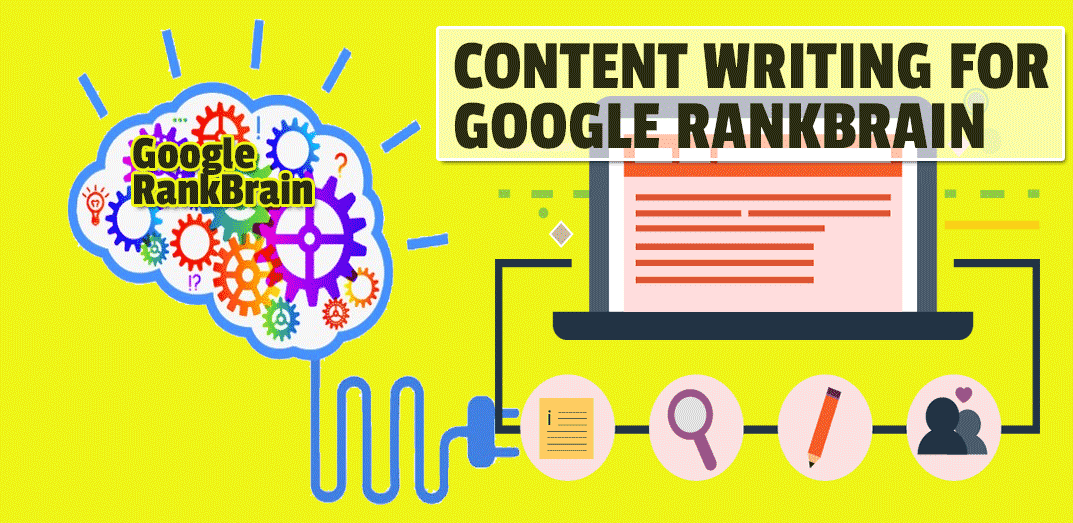For a couple of years now Google has been using its RankBrain system to rank your content.
RankBrain is a machine-learning artificial intelligence system that helps the Google algorithm in ranking various links and websites.
Although it hasn’t totally taken over the Hummingbird algorithm (the current ranking algorithm that Google uses) many SEO experts are claiming that the Google ranking algorithm derives almost 30% of its influence from RankBrain.
What exactly is Google RankBrain?
It’s an artificial intelligence system, and just like any contemporary artificial intelligence, it learns itself. It sometimes writes and modifies the ranking algorithm on its own.
The overall ranking process at Google is handled by the Hummingbird algorithm. RankBrain is a component of that algorithm that contributes towards assigning ranks to different links according to their relevance to the searcher’s intent.
Just like RankBrain, there are multiple components in the Hummingbird algorithm that analyze content.
Panda, Penguin and Payday components are used to fight spam. Pigeon is used to improve local search results.
Then, there is a Top Heavy component of the Hummingbird algorithm that assigns negative marking to ad-heavy pages.
To reward you for your mobile-friendly pages, the ranking algorithm uses the Mobile Friendly component.
Copyright infringement is taken care of by the Pirate component (source).
Whereas conventional SEO is based on the type of keywords you have used when writing your content and the quality of backlinks, RankBrain calculates the relevance of your content according to its own interpretation, according to what it thinks should be ranked rather than according to how the web page of the blog post has been “optimized”.
You must have read it at multiple places – even I have mentioned it multiple times on my blog – that when you are writing content, focus on the “intent” of the searcher instead of simply creating content based on your keywords.
The intent is what matters to RankBrain.
Unlike conventional ranking methods, RankBrain doesn’t rank web pages according to predefined formula.
It modifies the rank according to the interpretive need of the user.
It practically thinks like the human brain. It interprets meaning and gives you the best search result according to your particular need.
For example, if someone searches for “what are the best shows this week on Amazon Prime?” RankBrain will show the latest results no matter how well an article or blog post you wrote on the topic last month and how many people have linked to it.
Even if in terms of SEO practices your link should show up on page 10 or page 20 of the search results, if it is fresh and fresh content needs to be shown, your link will appear on the first page, even at the top.
So, how do you write content according to the Google RankBrain system?
To be frank, there is no particular way you can optimize your content for the RankBrain system.
As mentioned above, RankBrain doesn’t rank your content according to some predetermined parameters.
But it doesn’t mean you cannot benefit from RankBrain.
Content writing for RankBrain is very matter of fact: does your content solve a purpose? If it does, it will enjoy good search engine rankings.
The age-old wisdom that your content should provide the needed information to your human visitors still stands as in fact, such systems are developed by Google and other search engines to make sure that content creators create content that is relevant to people rather than machines.
When content is specifically created for machines it is open to manipulation. This is why Google has incorporated multiple algorithmic components to make sure that people don’t try to game the system.
How to make sure you enjoy good rankings in the times of artificial intelligence?
Search engine companies like Google aren’t creating sophisticated algorithms to stop your content from ranking well. They’re creating the sophisticated algorithms to make sure that content that deserves to rank well, does rank well.
So, instead of worrying about getting good ranks, focus on the quality, the relevance and the purposefulness of your content.
Do keywords matter when you are trying to optimize your content for the Google RankBrain system?
Not necessarily, but it doesn’t mean you stop neglecting them.
What are keywords after all? They are part of the language that you use to write your content.
Take for example this blog post. I’m writing about RankBrain, so I’m referring to it repeatedly, not purposely, but contextually. I’m not trying hard to use it repeatedly. It’s just happening.
Another focus of this post is content writing. I’m trying to explain to you how to write content that can convince the RankBrain ranking system.
Obviously these two terms are going to occur in my writing more than once, even multiple times. This tells Google that the foci of my blog post are RankBrain and content writing. There is nothing wrong in that.
But don’t just focus on your primary keywords. Use LSI keywords. Use semantic keywords. Even use the trending keywords if they are related to your topic.
Keywords matter when you’re writing content, but just make sure that they are there naturally and not stuffed. Quality, is what matters the most.
Focus on a better user behavior vis-à-vis your content writing if you want to make RankBrain happy
Since RankBrain avoids depending on conventional SEO benchmarks, it depends more on user behavior vis-à-vis your content. It observes the following while ranking your content:
What is your bounce rate?:
How many people stick to your website after finding your links on Google?
Do they immediately leave your link and come back to Google or do they linger on your website because they find useful information on it?
If your bounce rate is low RankBrain likes your content and improves its rankings.
How many people interact with your content?:
If your content is useful people engage with it.
They link to your content. They share your content with their followers and friends on social media and social networking websites. They even sometimes re-purpose your content.
The more people interact with your con tent, the better rankings it gets through RankBrain.
How in-depth is your content?:
The days of highly narrow content pieces are gone.
Remember when people used to create dedicated web pages and blog posts for every keyword combination for the same phrase? It is no longer acceptable.
You need to cover all your keyword combinations through a single web page or blog post, and this means, writing in-depth content pieces.
When you’re writing on a topic, cover practically every aspect of the topic within a single blog post or web page.
Is your content writing conversational?:
Conversational content writing is important because a greater number of people are using voice search and when people use voice search, they normally use a conversational tone.
Write shorter sentences. Avoid writing very complicated paragraphs. Try to capture just one thought in a single paragraph.
All in all, the more human friendly content you write, the better it is suitable for Google RankBrain.



